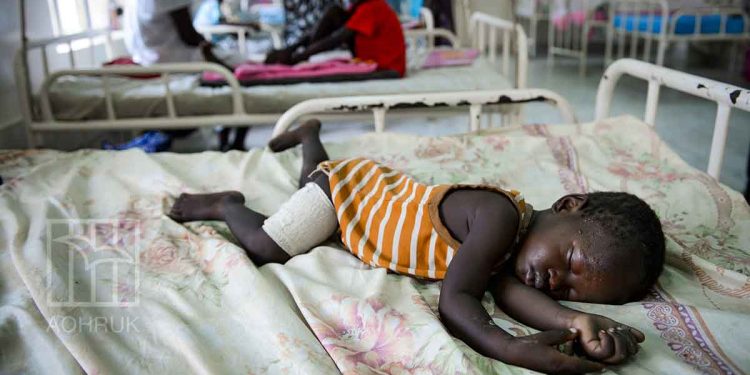Sudan is witnessing a sharp deterioration in its humanitarian crisis, with thousands of families — particularly women and children — now facing the threat of death from hunger as a result of the ongoing blockade, severe shortages of food, and lack of basic aid. Malnutrition is no longer simply a food crisis; it has become a real catastrophe directly threatening civilians’ lives.
The Sudanese Doctors’ Network reported 46 deaths in South Kordofan during July and August, most of them women and children suffering from acute malnutrition and hunger. The network added that more than 18,000 pregnant and breastfeeding women are in urgent need of nutritional support, reflecting the critical stage of the crisis that now endangers the lives of thousands in the state.
In Darfur, the situation has become even more dire, particularly in Al-Fasher in North Darfur, which has been under siege by the Rapid Support Forces since June 2024. According to the World Food Programme (WFP), around 300,000 people in the city remain completely isolated, suffering from continuous hunger, lack of essential services, and ongoing bombardment.
WFP confirmed that it does not have sufficient food to reach thousands in need, stressing the urgent need for safe humanitarian corridors.
In August alone, Al-Fasher recorded at least 63 deaths in one week due to malnutrition. Most communal kitchens have shut down, forcing families to survive on animal fodder and food scraps.
According to United Nations data, around 40% of children under five in Sudan suffer from malnutrition, with 11% in a state of acute and life-threatening malnutrition that places them at direct risk of death.
What is unfolding in South Kordofan and Darfur is a blatant violation of the right to life, as civilians are forced to endure extreme living conditions marked by a lack of food, water, and health care. The ongoing blockade and the obstruction of aid delivery, combined with the deliberate destruction of means of survival, is driving women and children into starvation. This constitutes a crime under international humanitarian law and basic human rights principles.
The worsening crisis highlights the impact of neglectful policies targeting civilian populations in conflict areas, turning hunger into a weapon of coercion and subjugation. This places the international community before an urgent test of its obligations to protect civilians. Without immediate intervention, Sudan risks sliding into a full-scale humanitarian disaster that will be extremely difficult to contain.


























